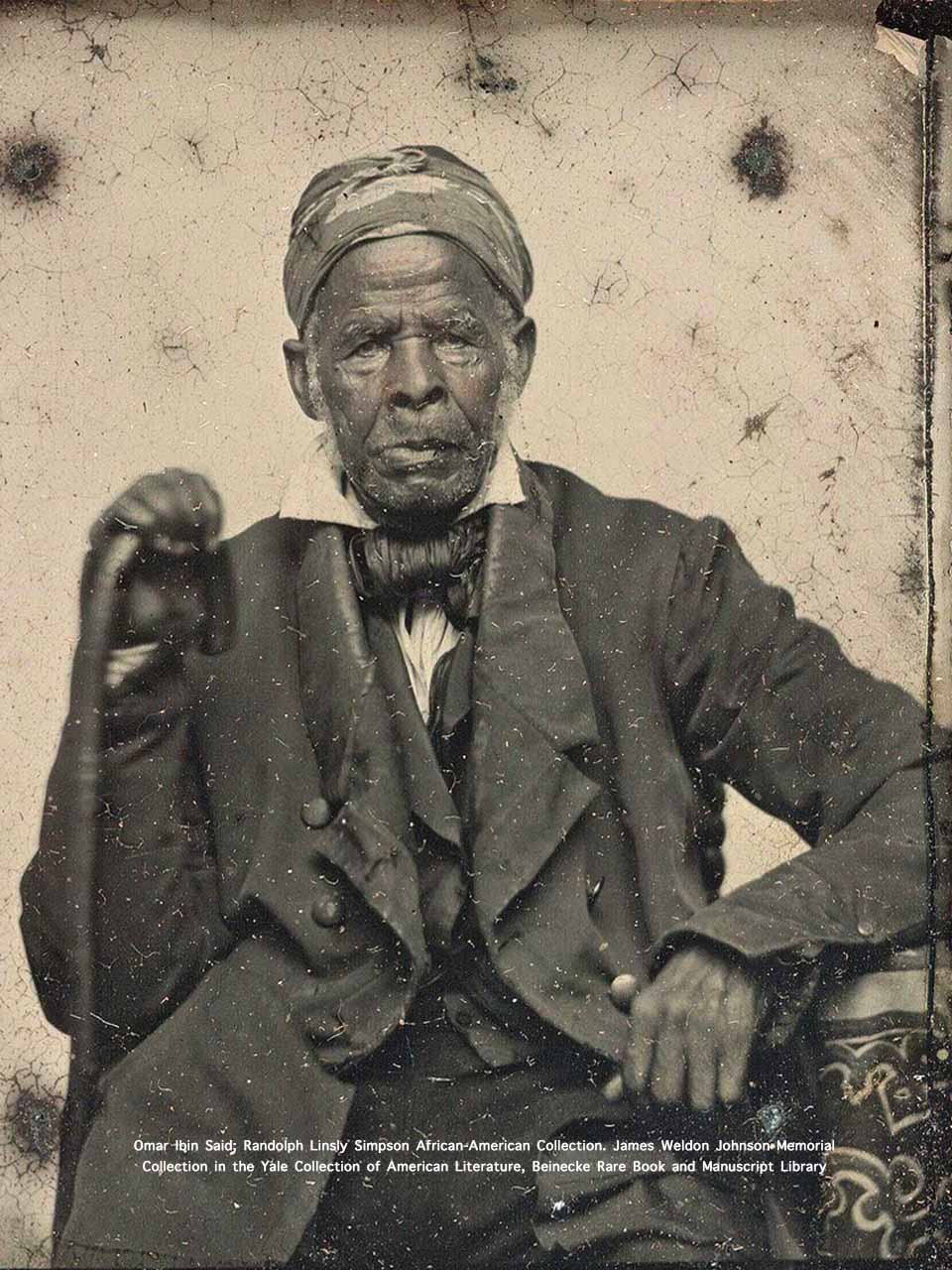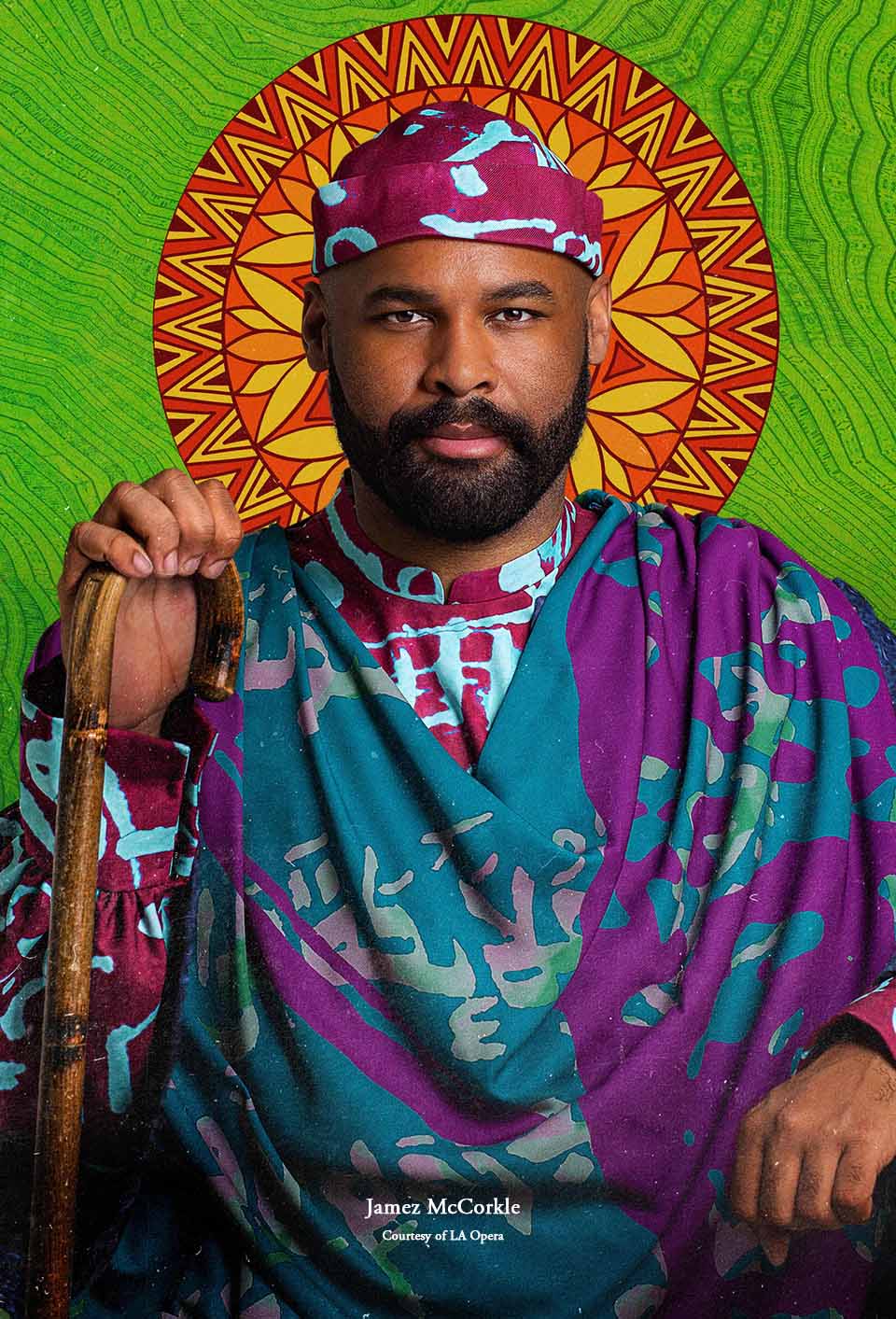Synopsis



Omar – An Opera in Two Acts
An Opera based on the 1831, posthumously published autobiographical essay “The Life of Omar Ibn Said,” written by historical figure Omar Ibn Said, a 37-year-old West African Islamic scholar (from present-day Senegal) who was imprisoned and sent to Charleston, South Carolina, where he was sold into slavery in 1807.
Synopsis by Allison Chu; courtesy: Boston Lyric Opera
Act I
Futa Toro, Senegal, 1806. Omar Ibn Said reads the Qur’an. In the background, the villagers and Omar’s mother pray to Allah, asking for guidance and assistance. Slavers have been pillaging the region, and Omar’s brother, convinced that an agreement will secure peace, negotiates with them. While Omar prefers to leave his fate in Allah’s hands, his brother is determined to control his destiny, and he leaves to talk to the slavers. Suddenly, the village is raided, and Omar’s brother discovers that he has been deceived. Slavers overrun the village and begin taking villagers prisoner. In the chaos, Omar is separated from his family, and his mother is murdered. Omar is dragged away to a slave ship.
The Middle Passage. Omar is shackled with imprisoned men in the hold of a cargo ship. They do not speak the same language and struggle to introduce themselves. Unsanitary and inhumane conditions in the cargo hold have caused disease and death. Meanwhile, the two white slavers watch over the prisoners, concerned about the impact of the high death rate on their future profits.
The Slave Market, Charleston, South Carolina. Julie, an enslaved woman, is dragged into the market for sale by a white kidnapper. She plans to escape him at the market and return to the Owens’ plantation in Fayetteville. At the market, she encounters Omar, but he cannot understand her English. Undeterred, she tells Omar that if he were to escape, he should find Master James Owen’s in Fayetteville. The auction begins, and a family is separated. When Omar goes up for auction, he notices that Julie has gotten free of her bonds. To create a diversion, Omar falls to his knees and prays loudly, giving Julie a chance to escape. However, doing so makes Omar less desirable, and he is sold to Johnson, a plantation owner.
Johnson’s plantation. Enslaved workers chatter about the newcomer, Omar – he doesn’t seem to be fit for working on the plantation. Johnson demonstrates his vicious temperament, striking a worker. He yells at Omar in an attempt to bully him into submission, but from Omar’s perspective, the words are garbled; Omar cannot understand him. Finally, Johnson sends Omar to pick cotton in the fields. Omar hesitantly responds.
Five months later. The spirit of Omar’s mother encourages Omar to pray to Allah and reminds him of Julie’s recommendation. Exhausted and distraught by his terrible life on the Johnson plantation, Omar flees in search of Fayetteville.
Act II
Fayetteville County Jail. Omar has been captured and brought to the county jail. The chorus swirls with questions about Omar: Who owns him? Who let him get away? Omar prays and writes on the jail’s walls, capturing the attention of the daughter of plantation owner James Owen. Calling his writing “magic,” she encourages Owen to purchase Omar. Owen is fascinated by Omar’s religious piety and believes Omar can be converted to Christianity.
Owen’s plantation. Katie Ellen, one of the enslaved workers on the plantation, is surprised that Julie came back. Owen introduces Omar to the other enslaved people, and they welcome him. Seeing that all is well, Owen takes his leave. Omar thanks Allah for guiding him to Fayetteville, and he is reunited with Julie. She reveals that her father had worn a cap like his and had prayed to the same god. But her father has been sold down the river, and she holds on “to memories, to histories, to feelings.”
Owen’s study. Omar is summoned and accompanied by Katie Ellen and Julie to Owen’s study. Owen and Taylor, a visitor from the North, discuss the prospect of converting Omar to Christianity. Owen gives Omar a Bible written in Arabic, and he and Taylor begin to coach Omar on writing the Lord’s Prayer. Instead, Omar defiantly expresses his desire to go home in Arabic.
Later that day, Owen’s plantation. Omar sits alone under a tree reading the Arabic Bible. He reflects on his life, thinks of his mother, and asks for forgiveness in Arabic. In the final scene, Julie is amazed that Omar can read and write. She encourages him to write a book to tell his story, and her suggestion is seconded by Omar’s mother. In writing, Omar gives praise for the beauty of the world: Allah flows through his pen.
Allison Chu is a Ph.D. candidate in Music History at Yale University. Her research focuses on the intersection of identity and opera in the twenty-first century.
